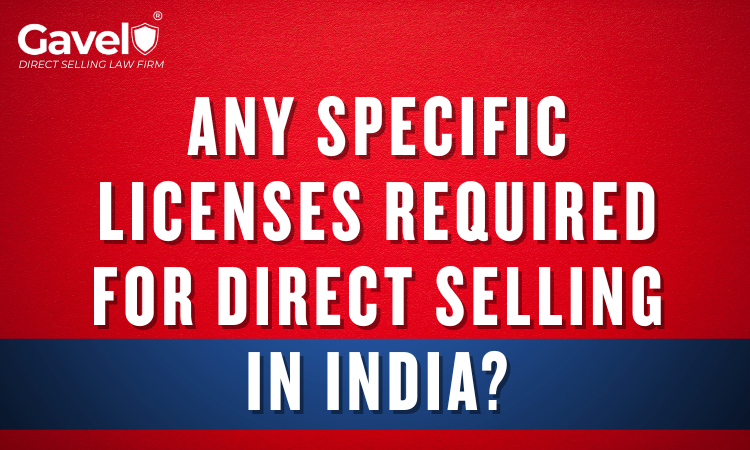Direct selling (MLM) has become a vital part of India’s retail and entrepreneurial landscape, offering opportunities for individuals to promote and sell products directly to consumers. However, many prospective direct sellers and Direct Selling (MLM) entities often ask: “Do I need a license to start a direct selling (MLM) business in India?” Let’s break down the legal and regulatory landscape surrounding direct selling (MLM) licenses in India.
No Separate “Direct Selling (MLM) License” — But Compliance Is Key
Currently, India does not require a separate or exclusive “Direct Selling (MLM) License” under central law. Instead, direct selling (MLM) entities and Direct sellers must comply with a combination of general and industry-specific regulations. The regulatory framework was solidified with the introduction of the Consumer Protection (Direct Selling) Rules, 2021, issued under the Consumer Protection Act, 2019.
These Rules clearly define the obligations and compliance requirements for both direct selling (MLM) entities and direct sellers, even though they do not mandate a special license for engaging in the business of direct selling (MLM).
Mandatory Registrations & Compliance Requirements
While a dedicated license is not necessary, the following registrations and legal compliances are essential to operate a lawful direct selling business in India:
1. Business Registration
- Direct Selling (MLM) Entities must be registered under the Companies Act, 2013 (as a private limited or public limited company).
- LLPs and sole proprietorships are not considered eligible to act as direct selling entities under the 2021 Rules.
2. Goods and Services Tax (GST) Registration
- Required for any entity or individual whose turnover exceeds the threshold under GST law.
- Essential for issuing invoices and claiming tax credits.
3. BIS, FSSAI, or Other Sectoral Licenses
- If the direct selling business deals with food products, an FSSAI license is mandatory.
- For cosmetics, health supplements, or Ayurvedic products, compliance with Drugs and Cosmetics Act, and AYUSH licensing may be needed.
- Products falling under the Bureau of Indian Standards (BIS) must comply accordingly.
4. Trademark and IP Registration
- While optional, protecting your brand name, logo, and product designs under the Trademarks Act, 1999 is highly recommended.
5. Compliance with Direct Selling Rules, 2021
Some of the critical requirements include:
- Establishing a grievance redressal mechanism
- Displaying product, refund, and warranty policies transparently
- Submitting self-declaration to the Department of Consumer Affairs
- Banning pyramid schemes or money circulation models
State-Specific Approvals or Monitoring Mechanisms Some states (e.g., Andhra Pradesh, Tamil Nadu, Kerala, Haryana, Goa, West Bengal, Meghalaya, Maharashtra) have issued notifications or mechanisms to monitor direct selling activities within their jurisdiction. While these do not demand separate licenses, entities may be required to submit self-declaration forms, maintain local nodal officers, or follow state-level rules for compliance.
Direct Sellers – Do They Need a License?
Individual direct sellers do not require a government license. However, they must:
- Enter into a valid agreement with a registered direct selling entity.
- Follow ethical selling practices as per Rule 7 of the Direct Selling Rules.
- Avoid false claims, misleading advertisements, or coercive recruitment.
Need Legal Guidance?
At Gavel Direct Selling Consultant, we specialize in advising Direct Selling businesses on entry strategy, regulatory compliance, documentation, and risk management. Contact us today to ensure your business is future-ready and legally sound. Contact us – gavellawfirm.in

